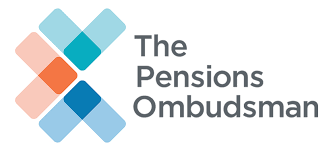Several companies have published their half-year results for 2025, revealing positive returns and varying surplus levels for their pension schemes.
A valuation of the Taylor Wimpey Pension Scheme (TWPS), which concluded in March 2024, showed that it had a surplus of £55m on its technical provisions funding basis and a funding level of 103 per cent.
As a result, no deficit contributions were required to be paid to the TWPS or the escrow account established following the 2019 valuation.
It said that the escrow account would remain in place until 30 June 2028, however, at which point a funding test will be conducted and funds will either be paid to TWPS or returned to the group.
Meanwhile, the group continued to contribute to scheme expenses (£2m per annum) and also made contributions via the Pension Funding Partnership (PFP) (£5.1m per annum until 2029).
The PFP also has seven annual payments due of up to £12.5m each from 2029 to 2035, provided the TWPS has a deficit on its technical provisions funding basis as of the prior 31 December.
Overall, total scheme contributions and expenses in the period were £6.1m (H1 2024: £6.1m), while, as at 29 June 2025, the IAS 19 valuation of the scheme was a surplus of 132.1m (31 December 2024: £90.2m).
The report also showed that its retirement benefit obligations were £17.4m at 29 June 2025 (31 December 2024: £22.2m), comprising a defined benefit (DB) pension liability of £17.3m and a post-retirement healthcare liability of £0.1m.
Looking ahead, the group said it would continue to work closely with the trustee in managing pension risks, including management of interest rate, inflation and longevity risks.
In addition to this, the BAE Systems half-year report also revealed a positive set of results, with the group's pension position, on an IAS 19 basis, remaining in an accounting surplus of £130m.
Indeed, the actual return on assets, excluding amounts included in net finance costs for its UK DB pension schemes, was £510m, while liabilities due to changes in financial assumptions increased by £359m.
The group also commented on the Virgin Media case, stating that it "continued to monitor developments in this area of the law with the help of its advisors."
The group added that it was "satisfied" that it remained appropriate not to adjust the financial statements following the Court of Appeal's decision to uphold the ruling of the High Court against Virgin Media, as any resulting change in pension obligations, if any, was not anticipated to be material to the company.
GSK also posted their H2 results for 2025, revealing that as of 30 June 2025, the net surplus on the group's pension plans was £15m compared with a £103m net deficit at 31 December 2024.
It claimed this movement from a net deficit to a net surplus was primarily related to an increase in the UK discount rate from 5.5 per cent to 5.6 per cent and a decrease in the UK inflation rate from 2.90 per cent to 2.70 per cent.
However, the report added that this was partially offset by a decrease in the US discount rate from 5.5 per cent to 5.3 per cent, and lower UK and US asset values.
Latest News
-
Govt urged to prioritise pension policy stability in Spring Statement
-
Just Group underlying operating profit falls by 39%
-
Employers warned modest pension defaults risk worsening adequacy gap
-
Aegon updates modelling tool to help members benchmark retirement needs
-
News in brief - 27 February 2026
-
PPF levy to remain at zero for 2026/27
Private markets – a growing presence within UK DC
Laura Blows discusses the role of private market investment within DC schemes with Aviva Director of Investments, Maiyuresh Rajah
The DB pension landscape
Pensions Age speaks to BlackRock managing director and head of its DB relationship management team, Andrew Reid, about the DB pensions landscape
Podcast: From pension pot to flexible income for life

Podcast: Who matters most in pensions?

In the latest Pensions Age podcast, Francesca Fabrizi speaks to Capita Pension Solutions global practice leader & chief revenue officer, Stuart Heatley, about who matters most in pensions and how to best meet their needs
© 2019 Perspective Publishing Privacy & Cookies











Recent Stories